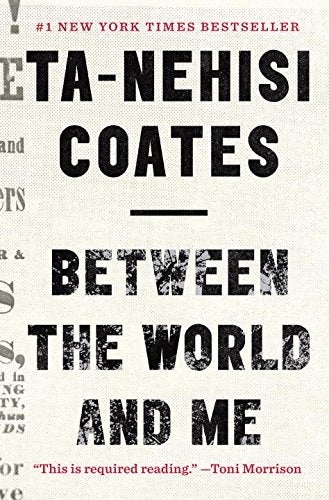Between the World and Me, By Ta-Nehisi Coates - Book review: What it is to be black
Text publishing - £10.99

Between the World and Me is written as a message, a warning even, by Ta-Nehisi Coates to his teenage son as to what to expect in life – from the street, from the police, from the world. It is, in short, a sketch (150 pages long) of what it is to be black and American today.
An essayist for the US magazine The Atlantic, Coates combines an unapologetically defiant voice with a poetic sensibility to poignant effect. His intentions are clear from the start: his title and epigraph are drawn from Richard Wright’s Native Son; the form reverberates with the provocatively personal testimony of James Baldwin’s The Fire Next Time – written, also, to a 15-year-old son. Those two books were published 23 years apart, in 1940 and 1963 respectively, but were united in railing at the systemic inevitability of racial injustice in America – and, 50 years on, following the high-profile, recent deaths of Trayvon Martin, Michael Brown and Eric Garner, Coates makes it clear that far too little has changed.
His argument that in America, it is traditional to destroy the black body – that its very economy has been built on such – is convincing. Because it is written ostensibly for his son, there is no conciliatory filtering – no muting of the pollution that has ever emanated from the American “dream”: “[White Americans] have forgotten the scale of theft that enriched them in slavery; the terror that allowed them, for a century, to pilfer the vote; the segregationist policy that gave them their suburbs.”
When talking about race, he says, it is all too often turned into a sociological phenomenon, rather than a physical reality that affects individuals, allaying shame and tempering our response: “All our phrasing – race relations, racial chasm, racial justice, racial profiling, white privilege, even white supremacy – serves to obscure that racism is a visceral experience, that it dislodges brains, blocks airways, rips muscle, extracts organs, cracks bones, breaks teeth.” This is imagery that cannot be ignored, that brings that very viscerality to us without compromise, without relief.
And what hope of breaking this cycle of oppression? For Baldwin, it was to be found in a need, at the time of the civil-rights movement, to move beyond the notion of “the Negro Problem” that handicapped both black and white. For Coates, this is both history and present, for no such reconciliation has come to pass. Rather than seek any grand solution himself, he admonishes his son – and his readers – to wake to the status quo, to consider it for ourselves – and to take what action we see fit.
Join our commenting forum
Join thought-provoking conversations, follow other Independent readers and see their replies
Comments